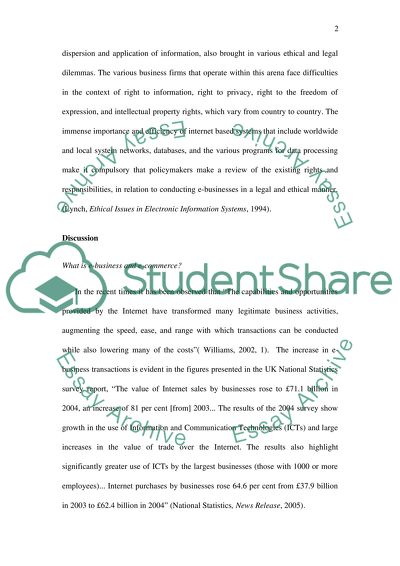Cite this document
(“The moral, ethical and legal issues affecting modern e-business Essay”, n.d.)
Retrieved de https://studentshare.org/e-commerce/1392389-what-are-some-of-the-moral-ethical-and-legal
Retrieved de https://studentshare.org/e-commerce/1392389-what-are-some-of-the-moral-ethical-and-legal
(The Moral, Ethical and Legal Issues Affecting Modern E-Business Essay)
https://studentshare.org/e-commerce/1392389-what-are-some-of-the-moral-ethical-and-legal.
https://studentshare.org/e-commerce/1392389-what-are-some-of-the-moral-ethical-and-legal.
“The Moral, Ethical and Legal Issues Affecting Modern E-Business Essay”, n.d. https://studentshare.org/e-commerce/1392389-what-are-some-of-the-moral-ethical-and-legal.


